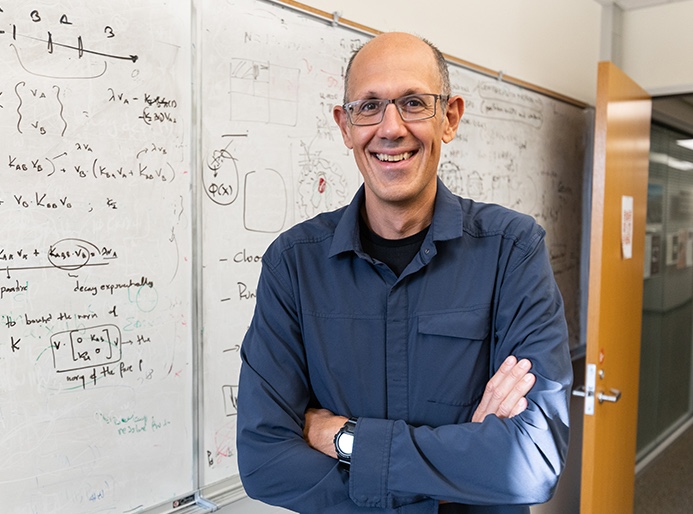
W. A. "Tex" Moncrief, Jr. Endowment in Simulation-Based Engineering and Sciences - Endowed Chair No. 2
Lead Parallel Algorithms for Data Analysis and Simulation Group
Professor Mechanical Engineering
George Biros is the W. A. "Tex" Moncrief Chair in Simulation-Based Engineering Sciences in the Oden Institute for Computational Engineering and Sciences and has Full Professor appointments with the departments of Mechanical Engineering and Computer Science (by courtesy) at the University of Texas at Austin. From 2008 to 2011, he was an Associate Professor in the School of Computational Science and Engineering at Georgia Tech and The Wallace H. Coulter Department of Biomedical Engineering at Georgia Tech and Emory University. From 2003 to 2008, he was an Assistant professor in Mechanical Engineering and Applied Mechanics at the University of Pennsylvania. He received his BS in Mechanical Engineering from Aristotle University in Greece (1995), his MS in Biomedical Engineering from Carnegie Mellon (1996), and his PhD in Computational Science and Engineering also from Carnegie Mellon (2000). He was a postdoctoral associate at the Courant Institute of Mathematical Sciences from 2000 to 2003. Biros was among a team of researchers that won the IEEE/ACM SC03 and SC10 Gordon Bell Awards.
Biros's research interests include the following:
* Fast numerical methods and parallel algorithms for problems in data analysis (e.g., machine learning, inverse problems, uncertainty quantification), and simulation (e.g., computational fluid mechanics, materials science, biophysical modeling).
* Medical image analysis and its integration with biophysical modeling (e.g, computational oncology, image registration and segmentation).
* Fast algorithms for simulation of complex fluids (e.g, flows in porous media, blood flow in microcirculation, vesicle flows, Stokesian
particulate flows, additive manufacturing, plasmas).
He currently serves as the Faculty Graduate Advisor for the CSEM Program.